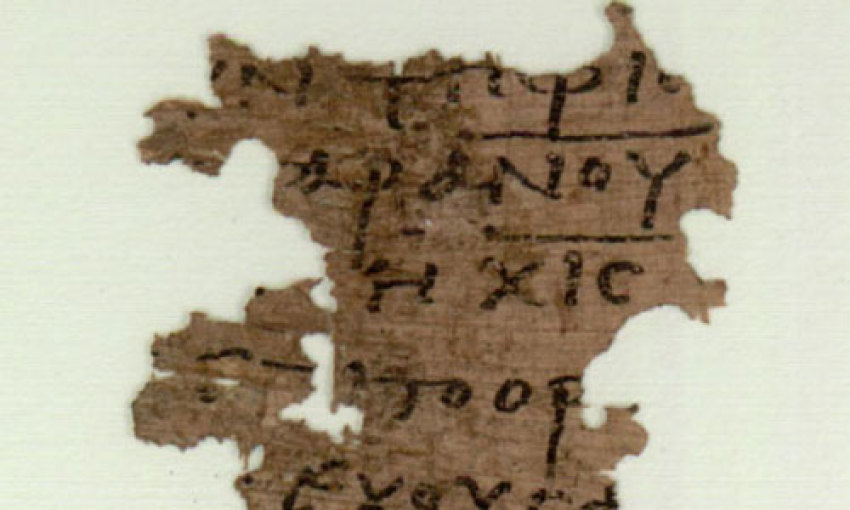Oxford professor arrested for selling stolen Bible fragments to Museum of the Bible

An academic from the U.K.’s Oxford University has been arrested as part of an investigation into the theft and unauthorized sale of ancient Bible fragments to Hobby Lobby Stores in the U.S. The Museum of the Bible in Washington, D.C., displayed the fragments temporarily.
The accused, identified as Dr. Dirk Obbink, a 63-year-old professor of papyrology at Oxford who allegedly stole the fragments belonging to the Oxyrhynchus collection in the Sackler Library, was arrested Thursday by Thames Valley Police, according to The Telegraph.
The Oxyrhynchus Papyri is a group of manuscripts that were discovered during the late 19th and early 20th centuries at a spot where ancient inhabitants of the city of Oxyrhynchus dumped their garbage of over 1,000 years.
Obbink “has been released under investigation,” a police spokesman was quoted as saying.
The Egypt Exploration Society, a British nonprofit excavation organization that works in Egypt and Sudan which owns the collection, issued a statement last October accusing Obbink of selling fragments of the Oxyrhynchus Papyri, after which the university suspended the professor.
The EES said 11 of the 13 missing fragments were sold “without authorization” to Hobby Lobby Stores, a U.S. arts and crafts chain, and they ended up in a collection belonging to the Museum of the Bible, which was founded by the evangelical Green family. The family also owns Hobby Lobby.
“The MOTB has informed the EES that 11 of these pieces came into its care after being sold to Hobby Lobby Stores by Professor Obbink, most of them in two batches in 2010,” the EES said.
Dr. Carl Graves, the EES director, confirmed the Museum of the Bible had since returned 13 missing fragments.
“The Board of Trustees of the MOTB has accepted the EES claim to ownership of the thirteen pieces identified to date, and is arranging to return them to the EES. The EES is grateful to the MOTB for its co-operation, and has agreed that the research on these texts by scholars under the auspices of the MOTB will receive appropriate recognition when the texts are published in the Oxyrhynchus Papyri series,” EES said in its statement.
Obbink had denied the accusations. “The allegations made against me that I have stolen, removed or sold items owned by the Egypt Exploration Society collection at the University of Oxford are entirely false,” he earlier told The Guardian. “I would never betray the trust of my colleagues and the values which I have sought to protect and uphold throughout my academic career in the way that has been alleged. I am aware that there are documents being used against me which I believe have been fabricated in a malicious attempt to harm my reputation and career.”
The Oxyrhynchus collection includes more than 500,000 fragments of literary and documentary texts — written in Greek, ancient Egyptian, Coptic, Latin, Arabic, Hebrew and other languages — dating from the 3rd century BC to the 7th century.
The stolen fragments included extracts from Genesis, Exodus, Deuteronomy, Psalms, Romans and I Corinthians, according to The Times.
“These are early fragments of the gospels or biblical fragments,” Graves told The Guardian. “They are testament to Egypt’s early Christian heritage and are early evidence of biblical scripture. We don’t value them monetarily but they are priceless and irreplaceable.”
In 2018, experts announced that a fragment from the New Testament Gospel of Mark found in the Oxyrhynchus garbage dump likely dates back to either the late second or early third centuries, and not the first century as was speculated by some scholars.



























